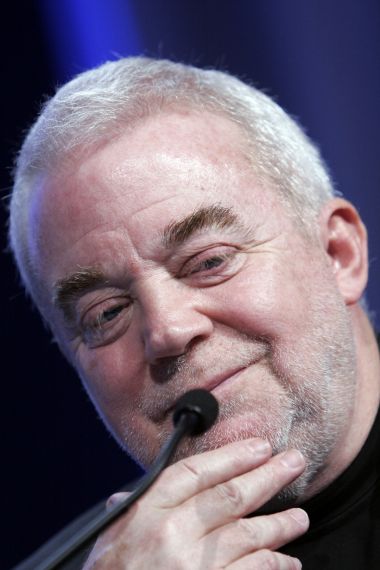Jim Wallis at Synod: 'Politics and markets are riddled with sin'

A "me" culture that has replaced a "we" culture in western society, an American preacher who is a spiritual adviser to President Barack Obama told the General Synod.
Rev Jim Wallis, a leading light on the evangelical Christian left in the US and the founder of the popular Sojourners movement, warned nearly 500 clergy, bishops and laity not to succumb to cynicism.
"Scepticism is fine but cynicism is a buffer against personal commitment," he said.
He made a passionate plea for hope. "Hope is believing despite the evidence and then watching the evidence change." He said the most important thing that Christians have to contribute to the Common Good is the power of hope, he continued, calling for charity projects to be turned into justice projects, not just to meet needs but to address why the need is there.
He criticised modern politics and markets. "Don't trust politics or the market which are riddled with sin," he said, adding that the power of sin must not be under-estimated. He defined the concept of the common good as "all responsible for all."
Wallis, whose Wallis' wife Joy Carroll is a former member of the synod, was was one of the first women to be ordained priest and is widely thought to have been the inspiration for the BBC's Vicar of Dibley, was preaching at the Synod eucharist at York Minster. The day before, he spent the afternoon and evening addressing and taking part in workshops with members of the synod, on the eve of the crucial vote on women bishops.
His presentation on Saturday, entitled the "Uncommon Good", came at the personal invitation of Archbishop of York Dr John Sentamu.
"The common good has become quite uncommon. That's a tremendous problem and, for us, a great opportunity," he said. "Our life together can be better. Ours is such a shallow and selfish age and we are in need of conversion."
He praised the Church of England for the amount of work it is doing on the subject.
He said the largest growing affiliation in the US is now "none of the above".
"I call them the nones. I love the nones. I love the other nuns too." Most of the nones believe in God. "They just don't want to affiliate with religion because of what we have or have not done."
This presented an opportunity to shake up public life and for evangelism. "Because what they are attracted to are those who are doing something to change their communities."
The concept of the common good is drawn from more than a century of Catholic social teaching. Wallis is among a growing number of non-Catholic church leaders, including the Archbishop of Canterbury Justin Welby, drawn to the ministry of the present Pope. Although the ultimate goal of full visible unity remains as remote as ever, the mutual respect of the present Anglican and Catholic church leaders, especially on the eve of the vote on women bishops, represents an utter contrast to past years when synod and Lambeth conference debates on women's ordination were often accompanied by dire warnings of the consequences for ecumenism.
Pope Francis had transformed the conversation with young people, not by trying to be superman, but simply by being "vicar of Christ" and doing and saying what people think Christians are supposed to do and say, Wallis said.
The most perfect definition of Christian was doing the common good, according to St John Chrystostum, because that was what loving your neighbour consisted of. Wallis contrasted this with the "dysfunctional" political climate in Washington.
He said the theology of the church he grew up in was in effect "save a few people from hell and judge all the others".
"Loving our neighbour is what will restore our credibility as a church." Otherwise, he warned, the next generation will simply move on from religion. "Religion make a big mistake when its primary posture is to protect itself and its own interests." God is personal but never private. The privatisation of faith had led to people walking away.











